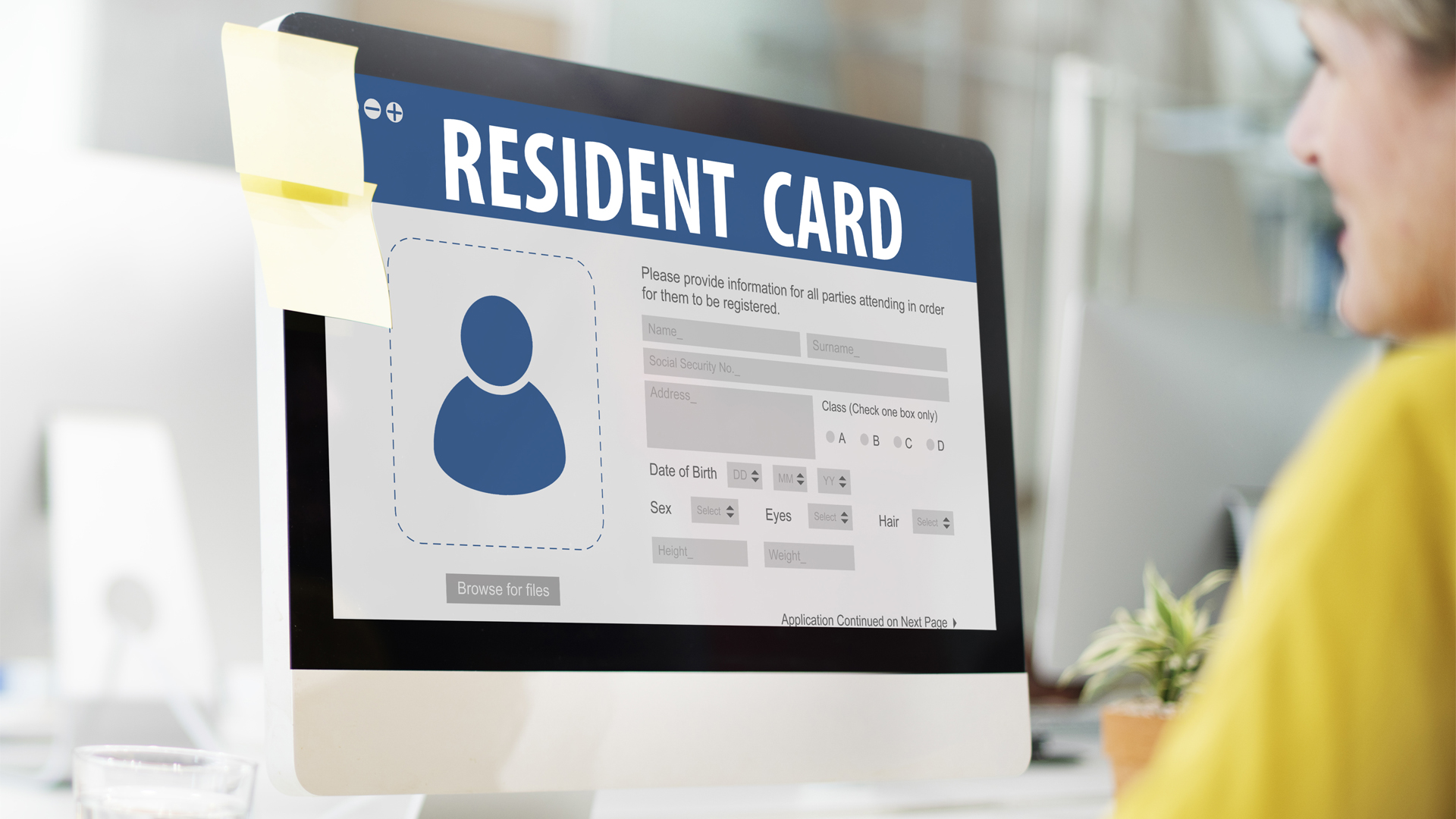
The UK is a great destination to live as a permanent resident, even if you don’t yet have citizenship. With great infrastructure, effective public service systems, quality healthcare, and other public amenities, it’s the dream location for many expats.
While the UK does offer several types of visas, some of which are valid for several years, most people who come to the UK as residents will apply for citizenship. But if it’s your first time in the UK as a resident, what should you do first?
What to Do When You Come to the UK for the First Time as a Resident?
Let’s explore everything you need to consider as a first-time UK resident, including how to look for accommodation, any legal requirements to cover, and how to make your stay as productive as possible.
Here are some crucial things to do when you come to the UK for the first time as a resident:
Register for an NI Number

When you move to the UK and plan on staying for a while, one of the first things you’ll need to do is register for a National Insurance (NI) number. An NI number is a unique personal identifier that enables you to pay taxes and national insurance contributions in the UK.
How to Apply?
To register for an NI number, you will need to call the National Insurance number application line and schedule an appointment to complete the application process.
During the appointment, you will be asked for personal details, such as your full name, date of birth, and current address in the UK. You may also be asked about your employment history and current employment status.
Requirements for Getting an NI Number
It’s important to note that you can only apply for an NI number once you’re in the UK and have the right to work. If you’re a non-EEA citizen, you’ll need to have a valid visa that allows you to work in the UK.
If you’re an EEA citizen, you can apply for an NI number as soon as you arrive in the UK, but you’ll need to show evidence that you’re actively seeking employment or are self-employed. You can apply for an NI number online at the official website of The Government of the UK.
Once you’ve completed the application process, you should receive your NI number by post within a few weeks. Your NI number is a crucial piece of information that you’ll need to provide to your employer, as well as when filing tax returns and applying for certain government benefits.
Editor’s Pick: Symphony of the Seas: A Complete Guide to the Largest Cruise Ship in the World
Get a UK Phone Number

Getting a UK phone number is one of the first things you’ll want to do when you arrive in the UK as a resident. Having a local phone number will make it easier to communicate with friends, family, and businesses in the UK, as well as help you stay connected while you’re out and about.
Here are 3 options for getting a UK phone number:
Purchase a Pay-as-You-Go SIM Card
If you’re looking for a simple and affordable way to get a UK phone number, purchasing a pay-as-you-go SIM card might be the best option for you.
Here are a few things to consider:
- Availability: You can find pay-as-you-go SIM cards at most phone shops, supermarkets, and convenience stores in the UK. They’re widely available and easy to purchase.
- Cost: The cost of a pay-as-you-go SIM card can vary depending on the network operator and the amount of credit that comes with the card. Generally, you can expect to pay anywhere from £5 to £20 for a SIM card.
- Topping Up Credit: Once you have a pay-as-you-go SIM card, you’ll need to top up the credit to make calls and send texts. You can do this online, by phone, or in person at a store. Some network operators also offer automatic top-up services, so you don’t have to worry about running out of credit.
Sign up for a Mobile Phone Contract
If you need a phone for regular use and want access to more services than a pay-as-you-go SIM card can offer, signing up for a mobile phone contract might be the best option for you.
Here are a few things to consider:
- Advantages and disadvantages of mobile phone contracts: Mobile phone contracts typically come with more services than pay-as-you-go SIM cards, such as a monthly allowance of calls, texts, and data. However, they also require you to commit to a longer-term contract and can be more expensive in the long run.
- Duration and cost of mobile phone contracts: Mobile phone contracts typically range from 12 to 36 months, and the cost will depend on the amount of data and other services you require. You’ll also need to undergo a credit check before signing up for a contract.
- Services included in mobile phone contracts: Mobile phone contracts can include a variety of services, such as unlimited calls and texts, a certain amount of data per month, and the ability to upgrade your phone at a discounted rate. Make sure to read the terms and conditions carefully before signing up for a contract.
Other Options for Getting a UK Phone Number
If neither a pay-as-you-go SIM card nor a mobile phone contract is the right fit for you, there are still other options available for getting a UK phone number.
These include:
- Getting a phone number through a landline provider: If you’re also signing up for internet service, most internet service providers (ISPs) offer phone and broadband packages that include a UK phone number. This can be a good option if you need a phone for home use.
- Virtual phone number services: If you don’t want a physical phone and just need a UK phone number for business purposes, virtual phone number services can be a good option. These services allow you to get a UK phone number without needing to have a physical presence in the UK.
Find a Permanent Place to Stay

Finding a permanent place to stay in the UK is one of the most important things to do when you arrive as a resident. Here are some steps to help you find a suitable place to live:
Determine Your Budget
Before you start your search, it’s essential to determine your budget for rent or mortgage payments. Consider your monthly income and expenses and set a realistic budget that will allow you to live comfortably without overstretching your finances.
Research Different Areas
The UK has a wide range of housing options available in different areas, and each area has its unique characteristics. Do some research to determine which areas might be a good fit for your lifestyle, preferences, and budget. You can find information online, in guidebooks, or by talking to locals or expats.
Contact Letting Agents or Estate Agents
Once you have an idea of your preferred type of housing and area, you can start contacting letting agents or estate agents. Letting agents can help you find rental properties, while estate agents can help you find properties for sale. They can also offer advice on the best areas to live in and help you with the paperwork.
Follow the list of the top real estate agents in the UK to help you find a place to stay.
Attend Viewings
Once you’ve found some properties that meet your requirements, it’s essential to attend viewings to get a better idea of what the properties are like in person. Take your time to inspect the property carefully, ask questions, and take note of any issues that need to be addressed.
Consider Additional Costs
In addition to rent or mortgage payments, there may be additional costs associated with renting or buying a property in the UK. These can include utility bills, council tax, service charges, and insurance. Make sure to factor these costs into your budget when deciding on a property.
Finalize the Paperwork
Once you’ve found a suitable property, you’ll need to finalize the paperwork. This will typically involve signing a tenancy agreement or a purchase contract, paying a deposit, and providing proof of your identity and financial status.
Finding a permanent place to stay in the UK can be a daunting task, but by following these steps, you can make the process easier and find a suitable home that meets your needs and budget.
Open a UK Bank Account

Opening a UK bank account is a crucial step when you arrive in the UK as a resident. It will make it easier for you to manage your finances, receive payments, and pay bills.
Here are some steps to follow to open a UK bank account:
Choose a Bank
Research different banks and compare their account features, fees, and requirements. Some of the most popular banks in the UK include Barclays, HSBC, Lloyds, NatWest, and Santander. Consider factors such as their online banking services, ATM locations, and customer service.
Check the Eligibility Criteria
Most UK banks require you to have a UK address and a valid proof of identity to open an account. Some banks may also require proof of employment or a student status. Check the eligibility criteria of the bank you’re interested in to ensure you meet the requirements.
Gather the Necessary Documents
You’ll need to provide certain documents when opening a bank account in the UK. These typically include a valid passport or ID card, proof of address such as a utility bill or tenancy agreement, and proof of income such as a payslip or bank statement.
Wait for Your Account to be Set Up
After you’ve completed the application process, you’ll need to wait for your account to be set up. This can take a few days, and the bank may contact you if they require additional information or documentation.
Once your account is set up, you’ll be able to manage your finances efficiently, pay bills, and receive payments with ease. Don’t let the process intimidate you – opening a bank account is a straightforward and necessary step in your journey as a resident in the UK.
Collect Your BRP

If you’re a non-EEA (European Economic Area) citizen coming to the UK for more than six months, you’ll need to apply for a Biometric Residence Permit (BRP). This document serves as proof of your right to live, work, or study in the UK.
You can apply for a BRP online at the UK Government Portal. The cost of applying for a BRP is 161 pounds and you can pay an additional 800 pounds if you need it urgently.
Once your application is approved, you’ll receive a letter informing you to collect your BRP within ten days of your arrival in the UK. Your BRP may be approved between 2-6 months of arrival, depending on your visa status.
Here’s what you need to know about collecting your BRP:
Check the Collection Location
Your collection location will be indicated in the letter you receive after your application is approved. It’s important to check the location and opening times to ensure you can collect your BRP within ten days of your arrival in the UK.
Bring the Necessary Documents
When you go to collect your BRP, you’ll need to bring your passport or travel document with you. It’s also a good idea to bring a copy of your application and decision letters in case there are any issues.
Check Your BRP Information
It’s important to check your BRP carefully to ensure that all the information is correct. If there are any mistakes or discrepancies, you’ll need to report them to the Home Office as soon as possible.
Recommended Reading: Visa-Free Travel: A Comparison of the Most Powerful Passports
Register With a GP

Registering with a GP (General Practitioner) is not just a requirement for residents in the UK, it is also an important step for your health and well-being. As a resident in the UK, you’ll want to have access to medical care and advice when you need it.
A GP can provide a range of medical services, from routine check-ups and health screenings to treatment for illnesses and injuries. They can also provide advice on maintaining a healthy lifestyle and managing ongoing health conditions.
Here’s what you need to know about registering with a GP:
Choose a GP
First, you’ll need to find a GP surgery that is convenient for you. You can use the NHS website to search for doctors in your area.
Check Your Eligibility
You’ll need to check your eligibility to register with a GP surgery. If you’re a UK resident or have a visa that is valid for more than six months, you should be eligible to register.
Register With the GP
To register with a GP, you’ll need to fill in a registration form. You can usually find this form on the surgery’s website or at the reception desk. You’ll need to provide some basic information, such as your name, address, and date of birth.
Registering with a GP is free, so that’s one relief.
Attend a Health Check
Some GPs may ask you to attend a health check before registering. This is to ensure that you are in good health and to identify any health concerns early on.
Finding a Job

Unless you’re living off significant savings, or have established investments, you’ll need to find ways to earn as a UK resident. If you’re looking to work in the UK as a non-citizen, there are a few requirements you’ll need to meet.
Here’s what you need to know about getting a job in the UK as a resident:
Check Your Visa Status
First, you’ll need to check your visa status to ensure that you’re eligible to work in the UK. If you have a visa that allows you to work, such as a Tier 2 (General) visa or a Youth Mobility Scheme visa, then you can start looking for work immediately.
Obtain a National Insurance Number
You’ll need to obtain a National Insurance Number (NI) before you can start working in the UK. This is a unique number that is used to track your contributions to the UK’s social security system. You can apply for an NI number online.
Apply for Jobs
You can start applying for jobs once you have your visa and NI number. There are many websites and job boards where you can find job listings, and you can also visit recruitment agencies or attend job fairs.
Obtain a Work Permit
If you don’t have a visa that allows you to work in the UK, you may need to obtain a work permit. This is a document that allows you to work in the UK for a specified period of time. You’ll need to apply for a work permit through your employer.
Organize Your Utility Bill Payment System
Organizing your utility bill payment system is an important step to take when you first arrive in the UK as a resident. Utility bills include your gas, electricity, water, and sometimes council tax bills.
The average cost of utilities (gas and electricity) in the UK is 111 pounds per household, but this varies depending on the size and type of household.
Here are some tips on how to organize your utility bill payment system:
Set up Direct Debits
One of the easiest ways to pay your utility bills is to set up direct debits with your bank. This way, the payment is automatically deducted from your bank account each month, ensuring that you don’t miss any payments.
Keep Track of Payment Due Dates
Make sure you know when your bills are due and plan accordingly. You can set reminders on your phone or calendar to help you remember when payments are due.
Shop Around for the Best Deals
It’s always a good idea to shop around for the best utility deals. You can compare prices from different suppliers and choose the one that offers the best value for your money.
Notify Your Provider of Any Changes
If you move to a new address or your circumstances change, such as a change in income or the number of people in your household, notify your utility provider as soon as possible. This will ensure that your bills are accurate and you’re not paying more than you need to.
Organize Your Transport

Organizing your transport is an essential part of settling into life in the UK. Here are some tips to help you get around:
Research Your Transportation Options
Research your transportation options in your area, including bus, train, and subway services. Look for the most convenient and affordable options for your daily commute or travel needs.
Get an Oyster Card or Travel Pass
If you plan to use public transportation regularly, getting an Oyster card or travel pass can help you save money. These cards can be used on buses, trains, and the London Underground, making it easy to get around the city.
To get an Oyster Card, apply online or visit the nearest transport office.
Consider Cycling or Walking
Cycling and walking are great ways to get around and stay active. If you live in a city, consider investing in a bike or using a bike-share service. Walking is also a great option for short distances and can help you get to know your new neighborhood.
Get a Driving License
If you plan to drive in the UK, you will need to get a UK driving license. You can find information on how to obtain a license on the UK government’s website.
Purchase Car Insurance
If you plan to own a car in the UK, it’s important to purchase car insurance. There are many insurance providers in the UK, so it’s a good idea to shop around for the best deals.
Before getting a car, you’ll need to ensure it’s passed an MOT test. You can check other requirements on the UK Government’s guide to buying a vehicle.
Final Thoughts
Moving to a new country can be a daunting experience, but by taking the necessary steps to settle in, you can make the transition smoother and less stressful. From registering for an NI number to organizing your utility bill payments and transportation, there are many important tasks to take care of when you first arrive in the UK.
Remember to be patient and give yourself time to adjust to your new surroundings. Take advantage of the resources available to you, such as local community centers and support groups, to help you meet new people and make connections.
And most importantly, don’t be afraid to ask for help if you need it.
Be sure to read our travel guides to the UK.
What to Do When You Come to the UK for the First Time as a Resident? - FAQs
It’s possible to open a UK bank account before you arrive, but many banks require you to have proof of address in the UK. This can make it difficult for new arrivals who do not yet have a permanent address. It may be easier to wait until you arrive and can provide the necessary documentation to open an account in person.
Yes, it is important to register with a GP as soon as possible, especially if you have any pre-existing medical conditions. This will ensure that you can access the healthcare you need and receive ongoing support for any health concerns.
The time it takes to receive an NI number can vary, but typically it takes around two to six weeks. You can start working without an NI number, but you should apply for one as soon as possible to ensure that you are paying the correct amount of tax and national insurance contributions.





